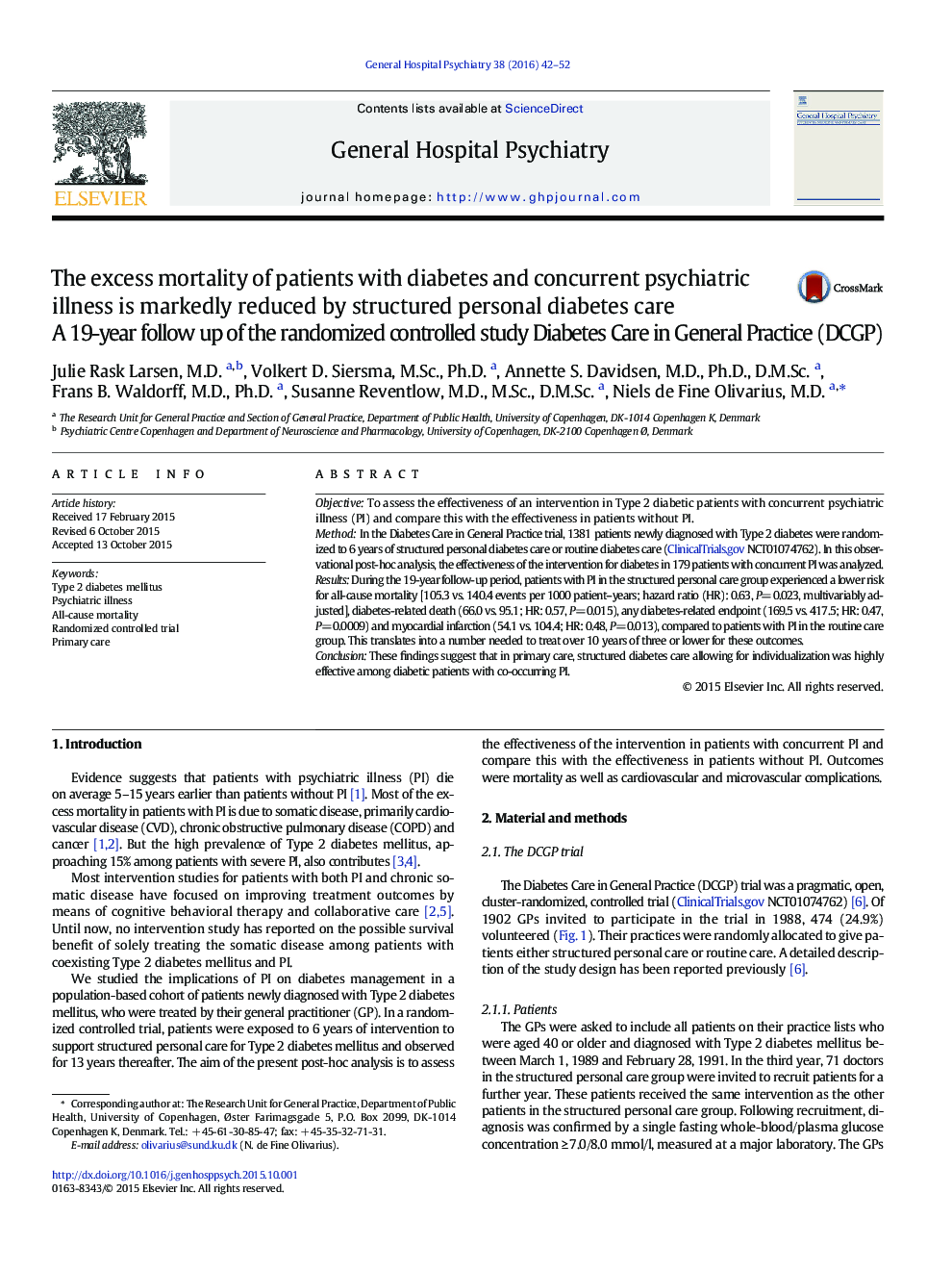| Article ID | Journal | Published Year | Pages | File Type |
|---|---|---|---|---|
| 3237605 | General Hospital Psychiatry | 2016 | 11 Pages |
ObjectiveTo assess the effectiveness of an intervention in Type 2 diabetic patients with concurrent psychiatric illness (PI) and compare this with the effectiveness in patients without PI.MethodIn the Diabetes Care in General Practice trial, 1381 patients newly diagnosed with Type 2 diabetes were randomized to 6 years of structured personal diabetes care or routine diabetes care (ClinicalTrials.gov NCT01074762). In this observational post-hoc analysis, the effectiveness of the intervention for diabetes in 179 patients with concurrent PI was analyzed.ResultsDuring the 19-year follow-up period, patients with PI in the structured personal care group experienced a lower risk for all-cause mortality [105.3 vs. 140.4 events per 1000 patient–years; hazard ratio (HR): 0.63, P= 0.023, multivariably adjusted], diabetes-related death (66.0 vs. 95.1; HR: 0.57, P= 0.015), any diabetes-related endpoint (169.5 vs. 417.5; HR: 0.47, P= 0.0009) and myocardial infarction (54.1 vs. 104.4; HR: 0.48, P= 0.013), compared to patients with PI in the routine care group. This translates into a number needed to treat over 10 years of three or lower for these outcomes.ConclusionThese findings suggest that in primary care, structured diabetes care allowing for individualization was highly effective among diabetic patients with co-occurring PI.
